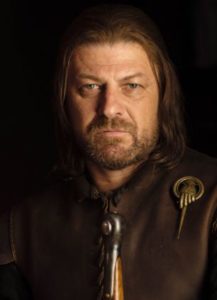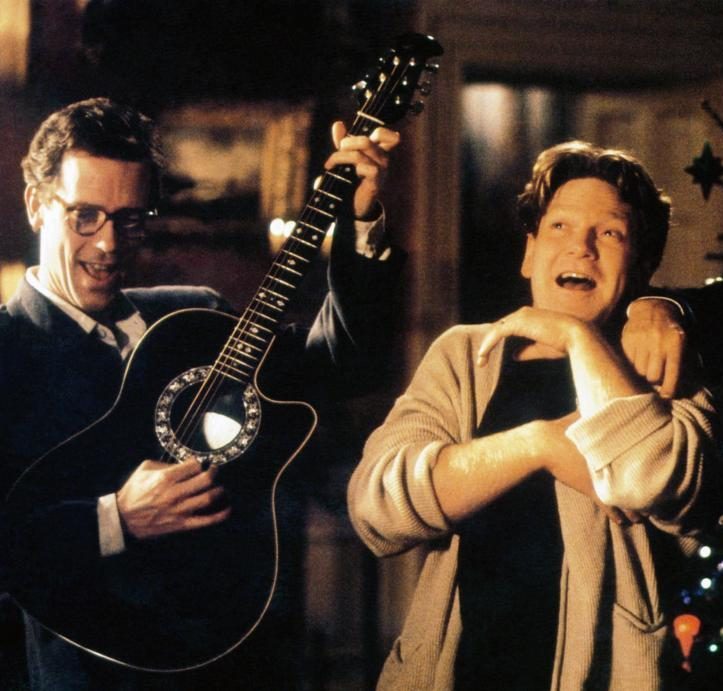
Thinkpiece Thursday
This post has been excerpted (and paraphrased) from a wonderful article in FORBES MAGAZINE.
 George R. R. Martin is a great writer who cares deeply about carefully plotting his stories in a way that is consistent and makes sense.
George R. R. Martin is a great writer who cares deeply about carefully plotting his stories in a way that is consistent and makes sense.
His characters act true to themselves and are believable. Perhaps more importantly, the bad things that happen in Martin’s books are always, without fail, consequences.
A character always causes his or her own downfall.
Let’s look at a few examples:
Oberyn Martell was killed in his fight with the Mountain due to his own foolishness. When the Mountain was down for the count, Oberyn doesn’t finish him off. Instead, he taunts the Mountain and loudly condemns Tywin Lannister, in a speech lasting long enough to give the Mountain time to rally. If Oberyn had not strutted about so much and had killed the Mountain when he had the chance, Oberyn would have lived to tell the tale of justice done.
Ned Stark is beheaded because he is too stubborn and honorable to seize power after Robert’s death. Cersei told Ned that when you play the game of thrones (willing or not) you win or you die.Ned was not self-serving or ruthlessness enough to seize power and save himself.
Robb Stark married for love rather than fulfill his strategic military vow to marry a Frey girl. He wasn’t merely betrayed by the Boltons and Freys, he betrayed them first. The Young Wolf was brutally killed when the Lannisters used his betrayal to turn his least loyal bannermen against him.
Joffrey Baratheon, was betrothed to marry Margaery Tyrell, but he was such despicable little sadist that her grandmother, the Queen of Thornes, took matters into her own hands. Queen Olenna Tyrell poisoned the young king and framed Tyrion Lannister for the murderous deed.
In each case, the plot turn was a direct consequence of some action, whether noble or foolish, or selfish. It’s always best if a character is his or her own worst enemy. Compelling writing and great antagonists find ways to force characters into self-limiting, self-destructive, or self-sabotaging behavior because of fear, pride, stubbornness, or recklessness.
Does it matter if travel times are foreshortened or motivations don’t quite sync? It does–
When Dany instructs Yara to take Ellaria and the Sand Snakes back to Dorne to muster an army it doesn’t ring logistically true. Sunspear is located in a secure bay at the southern tip of Westeros. Dragonstone is much further north, and very close to King’s Landing.
To sail all the way to Dragonstone from Slaver’s Bay, Dany would have to pass the Dornish capital. It would be an easy stop along the way, and the perfect place to meet up with Dany’s allies.
So why on earth didn’t she stop there to discuss her plans for invading King’s Landing and taking the Seven Kingdoms? Why sail all the way to Dragonstone if her plan was to then have most of her force sail south again?
Olenna was already in Dorne, forming her own alliance between House Tyrell and the Martells. Dany could have stopped at Sunspear, well protected in the Sea of Dorne, where she could have conveyed plans for her allies to march against King’s Landing.
This way, Yara wouldn’t have had to take Ellaria back to Dorne. They’d be there already! Grey Worm wouldn’t have had to sail all the way to Dragonstone and then all the way back down and around to Casterly Rock, either. He could have just left from Sunspear! Even Olenna would have had an easier time returning to Highgarden to muster her armies.
There was no debate between Tyrion and Dany about stopping in Dorne. This isn’t the consequence of a stubborn Queen, foolishly demanding that her court be held in Dragonstone. It’s sloppy writing.
From a narrative perspective, this choice is contrived. There’s only one reason to do it: To place Yara and Ellaria in danger and have Euron capture them. That is literally the only reason, and it’s the writer’s hand at work, rather than the characters acting consistently with their proven strategic sense. It’s not propelled by their own selfishness, fear, greed, or ego.
For this reason, early on in season 7, tragedy is not consequences of a character’s actions, but rather consequences arranged by the writers to conveniently push the story in a direction they wanted it to go. This improved in the last two episodes. But previously there was a lot of moving pieces around the chess board for convenience sake. It’s a lesson to be learned in your own writing.
To read the whole FORBES ARTICLE click HERE








No comment yet, add your voice below!